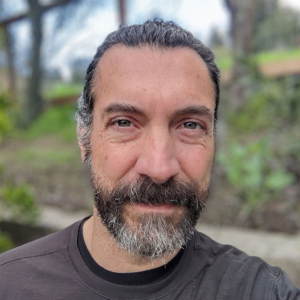My oldest had just started first grade when our lottery number came up and I received a call from the charter school. We were living on the north side of Scottsdale, Arizona and had been looking for school options for my then five year old. Great Hearts Academies, a chain of charter schools, immediately caught our attention with their advertising and the claims they made regarding student achievement. And so we joined their waiting list. More than a year later, the school called to tell us we were in. “You have two days to decide.”
Our visit the next day impressed us. Orderly children, all in uniform, seemingly well mannered and happy. We opted out of our district school then and there and enrolled at Great Hearts. And things went well for a couple of years, so well in fact that I hoped to send my youngest, then four, there for her kindergarten year.
That all changed at the start of 2016 when Great Hearts rolled out a new policy targeting transgender kids. Written with the help of Alliance Defending Freedom, an anti-LGBTQ law foundation with close ties to the charter network’s founder, Great Hearts’ “Biological Sex and Gender Policy” was the most anti-trans student policy in the country. The ignorance of the new policy was striking, but for me, the issue was personal. My youngest daughter is transgender. Thanks to this policy, it would be impossible for her to go to this school, be successful, and be herself.
Obviously, I objected. I tried to start a dialogue with Great Hearts’ leaders by following their corporate chain of command, but quickly ran into a wall. When the president of our school’s board indicated that the network wouldn’t alter the policy, “until forced to do so by the Supreme Court of the United States,” I had enough. Great Heart’s motto is “truth, beauty and goodness,” but that didn’t extend to trans kids. If the school wouldn’t welcome both of my children, then they couldn’t have either of my children. I withdrew my oldest from Great Hearts.
But I knew this issue was bigger than just my daughter. What the school was doing was discriminatory. With this policy in place, Great Hearts was making it impossible for a population of students to thrive in their schools. The school was actively working to push some families out of their network.
The policy itself was steeped in what Great Hearts President, Erik Twist, would later call “naïveté.” And at the time there was a lot of swirl, a lot of confusion about trans students and how best to support them. As a leader for the Arizona Trans Youth and Parent Organization, a nonprofit supporting the parents and families of trans kids, I would routinely hear the need to build safe, supportive schools for our students. It was clear that there was a huge need to educate the educators when it came to trans kids.
In order to help build support for transgender students in Arizona, I developed a Trans 101 course to cover the basics. I began delivering it to schools, social workers, community groups, faith organizations, anyone who would listen. Wherever I went, I found people hungry for information to help distinguish fact from fiction, science from belief, so they could support every child with the kindness and dignity they deserve. Support was growing but our chorus needed to be louder in order to be heard and to affect change.
In April of 2017, I learned that my city of Scottsdale was on the verge of granting Great Hearts a large plot of prime real estate. I had to speak up. My message to the Mayor and City Council was simple: Great Hearts discriminates and doesn’t represent Scottsdale. That brought some welcome attention and a louder chorus.
Soon after, a growing group of Great Hearts alums reached out to me wanting to know more. We started to organize a series of protests at Great Hearts events, including their annual gala. At information nights and in front of their flagship school and corporate offices, we held Socratic dialogues, inspired by the school’s “Classical Education” focus, inviting people to discuss the trans policy. Slowly, Great Hearts students began to pay attention, as did their parents, the media, and Great Hearts’ leaders. By the end of that year, our dialogues had started a conversation. We had finally gained the traction we needed.
Great Hearts would eventually change its policy on trans students, allowing for a “formal process” to accommodate the civil rights of trans students, but there is more learning they need to do. In 2018 I proposed a teacher training event around trans issues which never happened. Their current discrimination policy offers zero protection to LGBTQ students, teachers, or employees. Most recently, when a student wanted to start a Pride club, Great Hearts announced another new policy: No Student Clubs. They’d rather their students have nothing than support a gay club. Ridiculous.
After we left Great Hearts, I met with the principal of our new school to disclose that my youngest is trans and ask his support. His eyes got wide, he leaned back in his chair and took his time before responding. “We’ve never had a trans student before. How can we help?”
That thoughtful moment and humble approach was all I needed to hear. Often, that open show of support is where a school can begin.
Robert Chevaleau is a parent of two kids and a former Board member with Equality Arizona and the Arizona Trans Youth and Parent Organization. Robert currently sits as the PTA Liaison on his school’s Diversity, Equity, Inclusion, and Belonging committee to help ensure students and families on the margins feel represented and supported. Robert and his family now reside in northern California where his two kids attend a wonderfully supportive public school.

